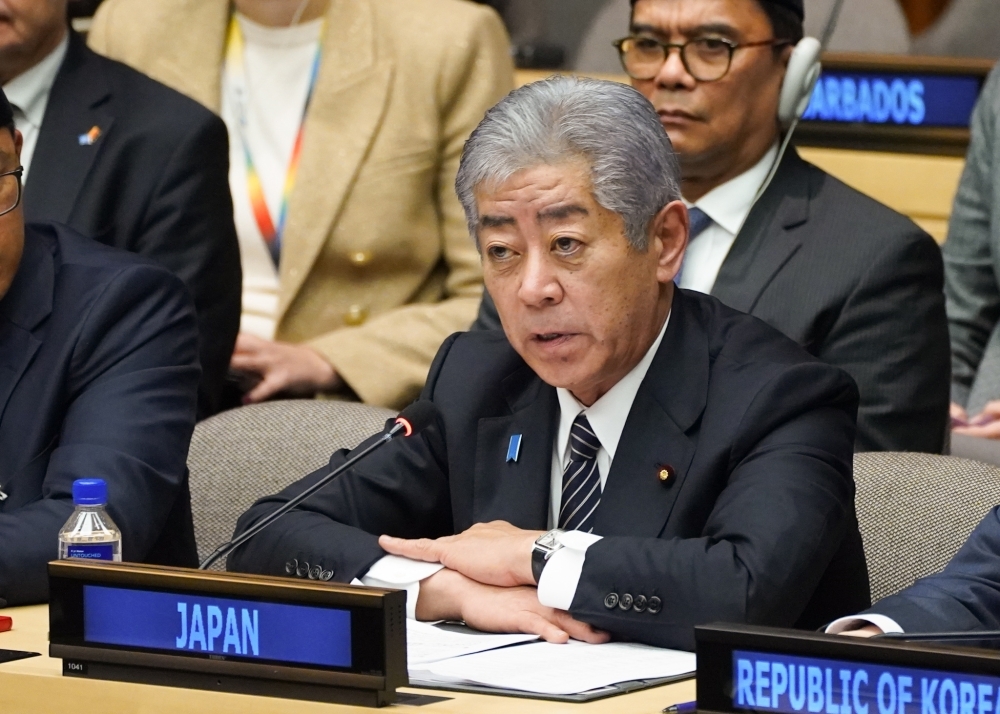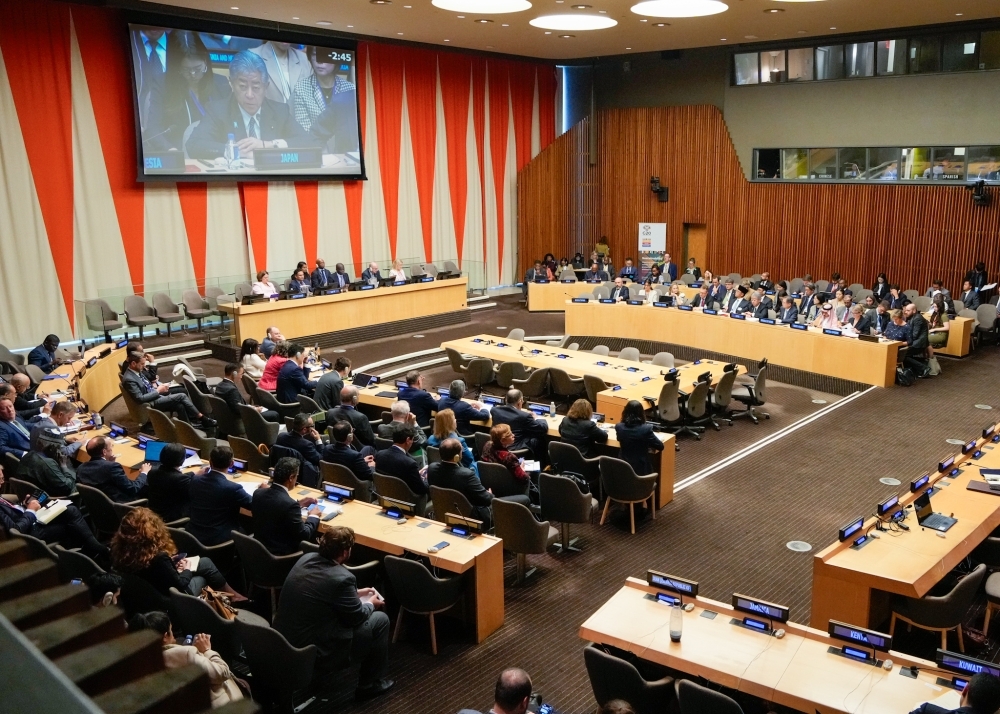G20 (Summit on Financial Markets and the World Economy)
The Second G20 Foreign Ministers’ Meeting Under South Africa’s Presidency (Summary)
September 25, 2025


On September 25, from 10:20 a.m. (local time), the G20 Foreign Ministers’ Meeting was held at the United Nations (UN) Headquarters in New York, the United States. The overview of the meeting is as follows. (The foreign ministers of G20 members and invited countries, representatives of international organizations and others attended to it. From Japan, Mr. IWAYA Takeshi, Minister for Foreign Affairs of Japan, attended the meeting.)
- This meeting was held under the theme “The United Nations at 80 years: Reaffirming Peace as a path to sustainable economic development”, and was open to G20 members, invited countries, related international organizations as well as all UN Member States. Following the remarks by H.E. Mr. Matamela Cyril Ramaphosa, President of the Republic of South Africa in the opening session, the representatives of G20 members, invited countries, related international organizations and others each made statements. The discussions were mainly focused on the reciprocal relationship between peace and sustainable development, G20 initiatives to solve various global issues, and the enhancement of the cooperation with international organizations, including the UN, etc.
- The outline of Minister IWAYA’s statement is as follows:
- Introduction
Today, the international community is facing multiple crises caused by major challenges to the rule of law, notably Russia’s aggression against Ukraine, as well as global issues.
Against this backdrop, we need to identify common ground and points of agreement, rather than division and confrontation, and with that, we should take the lead in solving these issues in a way that all members share responsibility. - Japan’s efforts to address global issues
Japan has been promoting efforts in the areas of peace and sustainable development, which are also today’s theme, by attaching great importance. Guided by the principle of human security, Japan has been taking the lead in addressing global issues, such as poverty, disaster, infectious diseases, and climate change.
Furthermore, in the age of multiple crises, it has become increasingly important to realize “quality growth” aligned with the times, which is achieved through (i) strengthening socioeconomic autonomy and resilience, including food, energy as well as economic securities; (ii) developing quality infrastructure; and (iii) efforts in areas such as digital.
Japan, as a nation at the forefront of addressing challenges, will share its knowledge on issues, such as declining birthrate and aging population, as well as disaster, with the international community. In doing so, Japan will work collaboratively to realize a sustainable economy and society beyond 2030. This was published in this year’s Voluntary National Review (VNR) on the Sustainable Development Goals (SDGs) as well. - Japan’s priorities in G20
Japan attaches great importance to disaster risk reduction, critical minerals, and debt issues among the priority issues raised by South Africa, the G20 Presidency.
Regarding disaster risk reduction, Japan will share its expertise and technologies developed through experiencing numerous disasters with the international community. Japan will thereby contribute to reducing risks of and enhancing responses to disasters that have become more severe and frequent.
Regarding critical minerals, aiming for stable supply by strengthening the resilience of supply chains, Japan will promote efforts that contribute to the realization of responsible critical minerals supply chains. This will be done in a manner that complies with labor standards, ensures measures against bribery and corruption, and considers the impacts on the environment.
Addressing the debt issues faced by developing countries is critical for sustainable development.
It is also important to speed up the debt restructuring process of the G20 Common Framework, further ensure debt transparency, and mobilize private finance. - Cooperation with Africa
The G20 Summit will be held for the first time in Africa this year, and thus cooperation with Africa is important. In August, Japan hosted the 9th Tokyo International Conference on African Development (TICAD 9), which underscored the importance of private sector-led sustainable growth, the empowerment of youth and women, as well as enhanced regional integration and cross-regional connectivity. Japan remains committed to advancing concrete initiatives in partnership with Africa. - Cooperation with international organizations, including the UN
Japan will advance its cooperation with international organizations, including the UN at its 80th anniversary, as well as the G20 members to co-create practical solutions aligned with the times. - Conclusion
We will also continue to actively contribute for the successful G20 Summit in Johannesburg.
- Introduction

